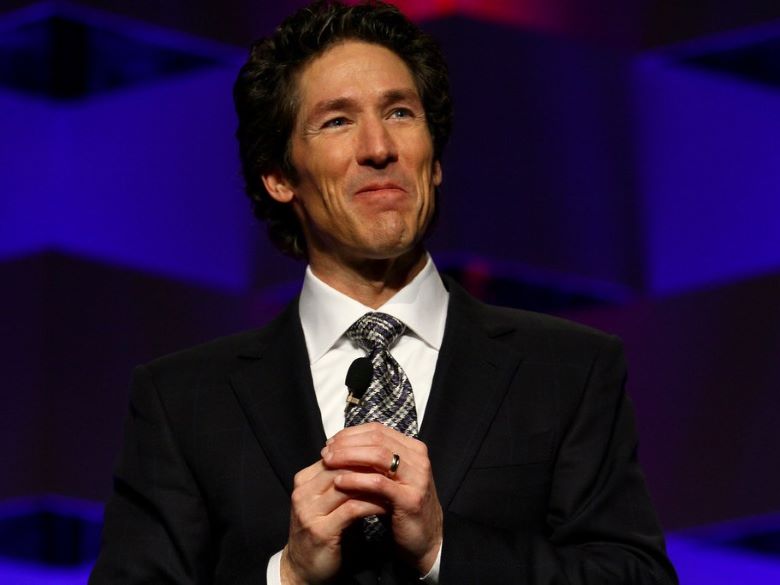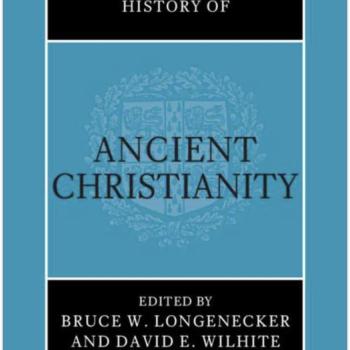But if any of you lacks wisdom, he should ask God who gives to all generously and ungrudgingly, and he will be given it. But he should ask in faith, not doubting, for the one who doubts is like a wave of the sea that is driven and tossed about by the wind. For that person must not suppose that he will receive anything from the Lord, since he is a man of two minds, unstable in all his ways. (James 1:5-8 NABRE)
Earlier this month, we ran a series called ‟Can Doubt and Faith Co-Exist?” in which we discussed that doubt could be healthy if you put it to work for you by testing new information in your search for Truth.
Nevertheless, doubt is not always a healthy thing. It is one matter to doubt one person’s interpretation of scripture or another individual’s world view. It is quite another to doubt God Himself.
God knows what you need. He knows it before you know it. He is not only capable, but also willing to meet your needs. Yet, it is not your need that He responds to when you pray. It is your faith.
Prayer is based on trust.
We ask God to meet our needs and hear our petitions because we believe and trust that He will handle the situation. If we didn’t believe that, why pray at all?
But we still do that sometimes, don’t we? Have you ever offered up a prayer because it seemed like the thing to do, but you didn’t really expect that God would answer your prayer?

Jesus’ brother James is not one to mince words, as you can see in the passage above. He explicitly says that someone who doubts when he prays will not get the answer to their prayer that they hope for. The key word there is “hope.”
There are two distinct kinds of hope.
There is expectant hope, where you are welcoming an event in advance that has not yet come to pass, and there is “I don’t know if this is going to work or not, but I sure HOPE it does.”
Again, what is the point of praying if you don’t expect an answer? Do you believe that God is God or don’t you? If we offer up a prayer from a position of worry, then we are literally “of two minds.” One mind is thinking of God answering the prayer, and the other is thinking of a Plan B.
When we do this, what we are really doing is making God the Plan B, because worry and anxiety will always cut in line ahead of whatever else is present.
If it is a daunting task to hold both kinds of “hope” in your mind at the same time, then how much more difficult would it be to persevere on two different paths in life simultaneously?
So, when James says that a person who attempts this is “unstable in all his ways,” he is not only saying that this person is indecisive, but by extension, that he cannot be trusted.
That sounds inordinately harsh but think about it. We’re talking about Christians here. If we can’t even make up our minds about relying on the God we claim to serve, then who would ever rely on US to follow through on anything? A person who spends their life in an endless “What If?” loop never gets anything done that needs doing.
So, if that’s what unstable looks like, then what about stable?
Throughout the Bible, the image of a rock denotes stability. God Himself is referred to as the Rock on many occasions. In the Sermon on the Mount, Jesus also uses this image to describe a life lived by faith:
Therefore, everyone who hears these words of Mine and acts on them will be like a sensible man who built his house on the rock. The rain fell, the rivers rose, and the winds blew and pounded that house. Yet it didn’t collapse, because its foundation was on the rock. (Matthew 7:24-5 HCSB)
Notice the “and” in Jesus’ statement. It’s not enough to hear what He’s saying and answer with a “yeah, but. . .” Stability and security come not from passive hearing, but from active LISTENING and the follow-through that accompanies it.
The word “security” calls to mind one more issue regarding the answering of prayers. One that is particularly sticky to us here in the USA.

Prosperity
“Your Best Life Now” espouses a concept known as “prosperity gospel.” There are several variations on the theme, but the main idea is that the Bible’s references to promises of blessing and prosperity are a contract between God and His children. All Christians have to do is confess, or “speak into existence” God’s promises, and He is bound to deliver on them. Both proponents and critics of prosperity theology sometimes refer to it simply as “name it and claim it.”
Indeed, there are many examples of God promising blessings in the Bible. Here are just a couple of them:
The thief’s purpose is to steal and kill and destroy. My purpose is to give them a rich and satisfying life. (John 10:10 NLT)
And the Lord will make you abound in prosperity, in the fruit of your womb and in the fruit of your livestock and in the fruit of your ground, within the land that the Lord swore to your fathers to give you. (Deuteronomy 28:11 ESV)
We have both the right and the position to ask God for anything in prayer but remember this. He doesn’t owe us anything, and we owe Him EVERYTHING! If we don’t keep that reality in clear focus, then we are likely to approach God with an attitude of entitlement, rather than one of humility. The result is that, in our minds, God becomes a supernatural ATM, spitting out the blessing whenever we insert our “believe to receive” card.
But wait a minute…
Isn’t “believing to receive” the whole point of faith? When we ask, we are supposed to believe and not doubt, and God does promise blessings to those who believe, so what’s the problem with believing that God will keep His word regarding prosperity?
Actually, there’s nothing wrong with trusting God to keep His promises. What’s wrong is the American definition of prosperity.
Let’s face it, y’all. We are SPOILED in this country.
As I write this, the federal minimum wage is $7.25 an hour. Most Americans can’t live on that. Just about nobody can raise a family on that.
And yet, our federal MINIMUM wage yields an income higher than that of 92% of the world.
Think about that for a minute. If you are working full-time and making federal minimum wage (many states, including mine, are higher), then you are already doing better than six billion people are.
But do you FEEL rich? In most cases, I would expect that would be a no.
And what about those other six billion people who make less? 2.1 billion of them are Christians. Are they prospering? Is God keeping His promises to them?
Here is a verse that is NOT frequently quoted by prosperity gospel adherents:
“Beloved, I pray that with respect to all things you may prosper and be healthy, just as your soul is prospering.” (3 John 1:2 DLNT)
The folks that would have you believe that it’s God’s job to make your life easier are putting a period in place of the comma in the verse above. Prosper and be healthy in all things! Sounds great!
But there’s something else there—a “just,” sometimes translated as “even.” John’s assumption is that physical and material prosperity will follow and accompany spiritual prosperity.
So, what does that look like?
You need look no further than Paul. First, consider this rundown of his physical circumstances:
Five times the Jews have given me their punishment of thirty-nine lashes with a whip. Three different times I was beaten with rods. One time I was almost stoned to death. Three times I was in ships that wrecked, and one of those times I spent a night and a day in the sea. I have gone on many travels and have been in danger from rivers, thieves, my own people, the Jews, and those who are not Jews. I have been in danger in cities, in places where no one lives, and on the sea. And I have been in danger with false Christians. I have done hard and tiring work, and many times I did not sleep. I have been hungry and thirsty, and many times I have been without food. I have been cold and without clothes. (2 Cor 11:24-27 NCV)
And yet, the same man says this:
I’m not saying that because I need anything. I have learned to be content no matter what happens to me. I know what it’s like not to have what I need. I also know what it’s like to have more than I need. I have learned the secret of being content no matter what happens. I am content whether I am well fed or hungry. I am content whether I have more than enough or not enough. I can do everything by the power of Christ. He gives me strength. (Philippians 4:11-13 NIRV)
Contentedness is the secret to a prospering soul. And this comes from trusting not that God will give you everything you want for your purposes, but that you will have everything you need for His.
So how about it?
Is your soul prospering? If so, then you are already living “Your Best Life Now.” You don’t have to “believe God” for the biggest house in the neighborhood to make it better.
I hope you have enjoyed this series. To follow future posts, please click on Free Newsletter to stay in the loop.

















